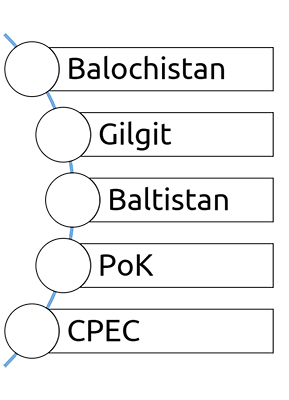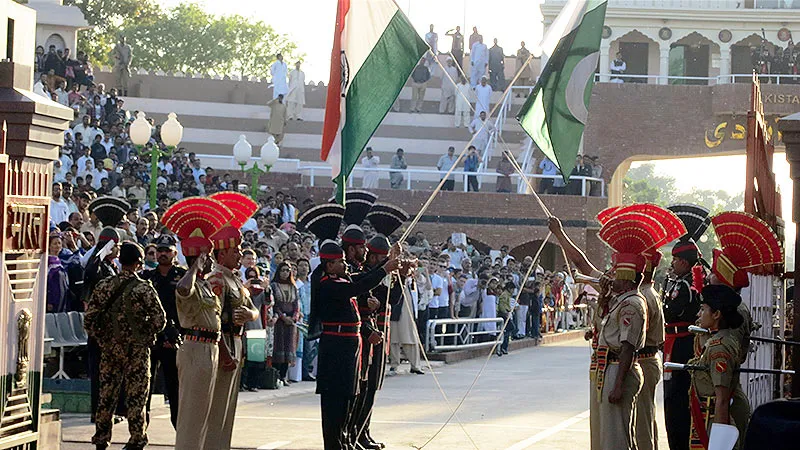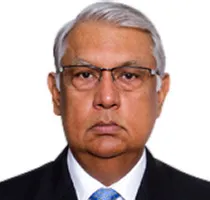Prime Minister Narendra Modi’s 94 minute Independence Day address, the longest in the seven decades of India’s independent history by any Prime Minister, would have been forgotten and consigned to the archives, but for the reference to Peshawar and the people of Balochistan, Gilgit-Baltistan and Pakistan-occupied Kashmir (PoK), towards the end of his speech.
So what did PM Modi say that caused all the kerfuffle? Nothing so unexceptionable it was. PM Modi underlined the difference between those who are imbued with humanism, empathise with the young victims of the school massacre in Peshawar and those who glorify and reward terrorists. In his speech, Modi went on to thank the people of Balochistan, Gilgit-Baltistan and PoK who had greeted and thanked him.
Clearly, he was making a stark distinction between India and Pakistan, the latter a confirmed terrorist sponsoring country. A former American Secretary of State, Madeline Albright, had contemptuously referred to Pakistan as an “international headache”. More recently, Hillary Clinton, also a former American Secretary of State and now a potential President of the USA, told Pakistan that if they nurtured snakes in their backyard they can expect that they will be bitten also. This was a reference to Pakistan’s official policy of nurturing terrorist organisations and using them as tools in pursuit of geo-political goals. Altaf Hussain, the MQM Supremo and leader of the Mohajirs called Pakistan a “cancer of the world” this week.
 PM Modi’s remarks have been far less provocative but they triggered a tsunami of comments in the media and the social media went viral. The Pakistani ruling establishment was rudely shaken and thrown off balance, reacting in a manner which was entirely predictable. Pakistani leaders and officials growled about India crossing “red lines” in interfering in the internal affairs of Pakistan, seeking to divert attention from the human rights violations in “Indian-held Kashmir” and asserted that PM Modi remarks had confirmed that the R&AW was encouraging terrorism in Baluchistan, citing the arrest of so-called Indian spy Kulbhushan Jadhav. Pakistani media went ballistic with the whole spectrum of accusations against India, Support from Baloch leaders and leaders in PoK for PM Modi’s comments further galled the Pakistani establishment.
PM Modi’s remarks have been far less provocative but they triggered a tsunami of comments in the media and the social media went viral. The Pakistani ruling establishment was rudely shaken and thrown off balance, reacting in a manner which was entirely predictable. Pakistani leaders and officials growled about India crossing “red lines” in interfering in the internal affairs of Pakistan, seeking to divert attention from the human rights violations in “Indian-held Kashmir” and asserted that PM Modi remarks had confirmed that the R&AW was encouraging terrorism in Baluchistan, citing the arrest of so-called Indian spy Kulbhushan Jadhav. Pakistani media went ballistic with the whole spectrum of accusations against India, Support from Baloch leaders and leaders in PoK for PM Modi’s comments further galled the Pakistani establishment.
Pakistan’s provocations had begun some time back and the elimination of the Kashmiri Hizbul Mujahedeen terrorist Burhanuddin Wani by the Indian security forces on 8th July triggered a backlash in the Valley which was well planned, courtesy Pakistani sponsored agent provocateurs who had infiltrated earlier. Accompanying this were repeated attempts by the Lashkar-e-Toiba terrorists across the LoC. Large funds flowed via hawala and banking channels into certain accounts from Gulf countries that are now being investigated by the NIA.
Nawaz Sharif, the Pakistani PM announced on 22 July, at a public gathering that his country was waiting for the day when “Kashmir becomes Pakistan” (sic) and declared Wani to be a martyr. Nawaz Sharif’s aggressive role in stoking the fires has also confirmed that he has joined hands with the Army, in the renewed anti-Indian campaign, succumbing to the pressure brought on him on account of the exposure of his family’s illegal bank accounts in Panama. Sharif and Shareef (General) are now on the same page vis-à-vis Pakistan’s India policy.
The insensitive and insulting behaviour towards India’s Home Minister, during the SAARC Home Ministers’ meeting, added further fuel to the provocations. An international campaign to denigrate India was launched earlier at the UNHRC and the OIC. Pakistani High Commissioner in Delhi said on his country’s independence day or 14th, August that he was dedicating the day to the people of Kashmir andthat the “struggle for independence will continue till Kashmir gets freedom… sacrifice of the people of Kashmir will not go in vain."
The die was cast for PM Modi’s response the next day. Earlier, PM Modi also commented at the all party meeting on Kashmir that “Pakistan forgets that it bombs its own citizens using fighter planes. The time has come when Pakistan will have to answer to the world for the atrocities committed by it against people in Baluchistan and Pakistan occupied Kashmir”.
Balochistan was forcibly integrated into Pakistan using subterfuge and coercion by none other than Jinnah. Balochistan’s forcible annexation by Pakistan has always been contested by the Baloch people. Baluchistan has been ruthlessly exploited for its mineral wealth. The atomic bomb tests were also conducted in Balochistan.
The Pakistan Army and other security forces have conducted a brutal and vicious campaign against Baloch freedom fighters and the people of Gilgit-Baltistan, fighting to rid themselves of Pakistani oppression. Though a minority in Pakistan (7 million population), Balochs have been fighting for freedom since 1948. The world is still relatively unaware of Pakistani atrocities in these two regions. Pakistan’s genocide against the Bengalis, in erstwhile East Pakistan, is well documented.
Pakistan’s belligerence may well have been encouraged by China, Pakistan’s “Iron brother”, as result of India’s opposition to the China-Pakistan Economic Corridor (CPEC), parts of which run through PoK and Baluchistan, terminating in the port of Gwader.With American and Western financial and military support dwindling, Pakistan has turned its back on SAARC and has opted to become a client state of China.
Gwader is being built up to ultimately serve the commercial and strategic interests of China, with Pakistan hoping for collateral infrastructure, energy and industrial benefits. In future, Gwader will certainly emerge as a naval base for China, with its strategic fallout on the larger West Asian region and impact negatively on India’s security concerns. The Baloch people are extremely concerned about their territory being usurped by hordes of Punjabis, Sindhis, Chinese and others, with little benefit accruing to their own people.
PM Modi’s response is a calculated one, based on the conclusion that all his gestures and patience have produced zero results. On the contrary, Pakistan’s attitude has become more belligerent and provocative. The human rights tool can be a double edged sword and PM Modi has clearly indicated that two can play the same game. Balochistan and PoK are on his radar screen. The rules of game are being rewritten and the Durand Line, Balochistan and PoK may now witness escalation in asymmetric conflict.
This commentary originally appeared in Policy Pulse.
The views expressed above belong to the author(s). ORF research and analyses now available on Telegram! Click here to access our curated content — blogs, longforms and interviews.




 PM Modi’s remarks have been far less provocative but they triggered a tsunami of comments in the media and the social media went viral. The Pakistani ruling establishment was rudely shaken and thrown off balance, reacting in a manner which was entirely predictable. Pakistani leaders and officials growled about India crossing “red lines” in interfering in the internal affairs of Pakistan, seeking to divert attention from the human rights violations in “Indian-held Kashmir” and asserted that PM Modi remarks had confirmed that the R&AW was encouraging terrorism in Baluchistan, citing the arrest of so-called Indian spy Kulbhushan Jadhav. Pakistani media went ballistic with the whole spectrum of accusations against India, Support from Baloch leaders and leaders in PoK for PM Modi’s comments further galled the Pakistani establishment.
PM Modi’s remarks have been far less provocative but they triggered a tsunami of comments in the media and the social media went viral. The Pakistani ruling establishment was rudely shaken and thrown off balance, reacting in a manner which was entirely predictable. Pakistani leaders and officials growled about India crossing “red lines” in interfering in the internal affairs of Pakistan, seeking to divert attention from the human rights violations in “Indian-held Kashmir” and asserted that PM Modi remarks had confirmed that the R&AW was encouraging terrorism in Baluchistan, citing the arrest of so-called Indian spy Kulbhushan Jadhav. Pakistani media went ballistic with the whole spectrum of accusations against India, Support from Baloch leaders and leaders in PoK for PM Modi’s comments further galled the Pakistani establishment. PREV
PREV


